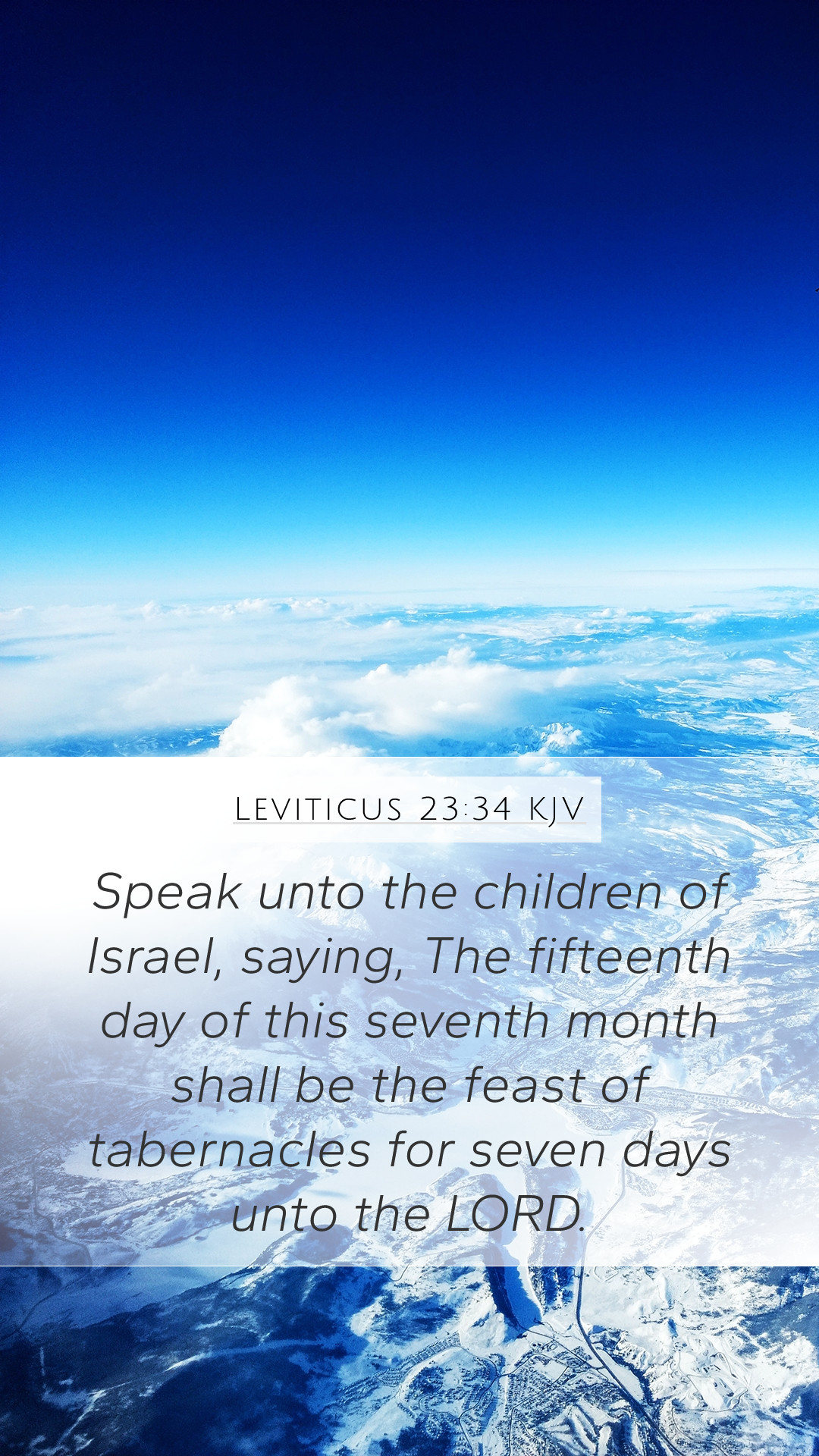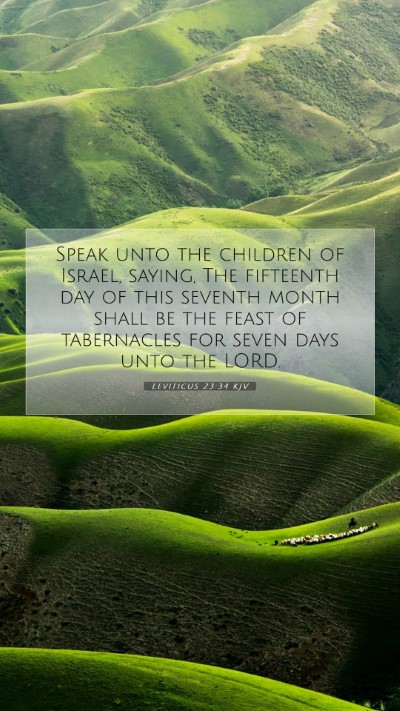Leviticus 23:34 - Understanding the Feast of Tabernacles
Leviticus 23:34 states, "Speak unto the children of Israel, saying, The fifteenth day of this seventh month shall be the feast of tabernacles for seven days unto the LORD." This verse introduces the Feast of Tabernacles, one of the significant feasts in the Jewish calendar, highlighting its importance in Israelite worship and remembrance.
Bible Verse Explanation
This verse indicates the command given to the Israelites regarding the observance of the Feast of Tabernacles, also known as Sukkot. This festival is a time of celebration and remembrance, marking the end of the harvest season and commemorating the Israelites' journey in the wilderness.
Historical Context
According to Matthew Henry, the Feast of Tabernacles was instituted as a reminder of the 40 years of wandering in the desert, where the Israelites lived in temporary shelters (tabernacles). This historical context suggests the need for humility and gratitude for God's provision during that time.
Theological Significance
Albert Barnes emphasizes that this feast serves not just as a historical reminder but also has deep theological implications. It signifies God's protection and care for His people. It invites them to reflect on their dependence on God and to celebrate His faithfulness and abundant blessings.
Spiritual Application
Adam Clarke notes the importance of applying the lessons from this feast to daily life. Christians today can learn from the biblical practices of giving thanks and remembering God's past provisions. The Feast of Tabernacles is an opportunity to celebrate God's goodness and to cultivate a spirit of gratitude in our lives.
Bible Verse Interpretations
- Commemoration of God's Deliverance: The feast commemorates God's deliverance of Israel from Egypt and His guidance through the wilderness.
- Joy and Thanksgiving: It encourages rejoicing in the blessings received during the harvest and acknowledging God's goodness.
- Reflection and Renewal: The observance of this feast calls believers to reflect on their spiritual journey and renew their commitment to God.
Cross References
- Exodus 23:16: References the Feast of Harvest and its significance.
- Deuteronomy 16:13-15: Describes the observance of the Feast of Tabernacles with more detail.
- John 7:2: Mentions the Feast of Tabernacles during the New Testament, illustrating its continued significance.
Conclusion
This verse, Leviticus 23:34, provides a foundational understanding of the Feast of Tabernacles, blending historical, theological, and practical insights that enhance our bible study understanding. By exploring the meanings and implications of biblical passages like these, individuals and bible study groups can deepen their appreciation of Scripture and its relevance today.
In summary, Leviticus 23:34 serves not only as a divine command but also as an invitation to experience God's continued presence and provision, making it relevant for our lives and faith practices today.


